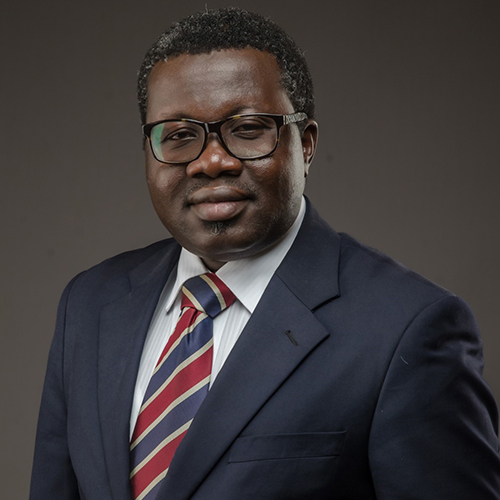
Adebolajo A. Adeyemo
Country (Nationality)
Nigeria
Grantee Title
The silent plague
Grantee Description
Adebolajo A. Adeyemo is a Senior Medical Research Fellow and Head of Ear and Hearing Disorder Research Group at the Institute of Child Health, University of Ibadan and Honorary Consultant ENT Surgeon, University College Hospital, Ibadan. His research interest centers on “Deafness within the African milieu”, this is a deliberate attempt to situate deafness and hearing disorders research in the context of the African setting. The focus on deafness stems from the uneven burden of hearing impairment in sub-Saharan Africa. Deafness is the most common disability in the world with a severe footprint in Africa.
Adebolajo will utilize a tripod approach of clinical management, laboratory, and community research, to adopt a holistic approach to research on deafness. It is expected that this approach will enable a rapid bench to bedside translation and community acceptance of research outputs with the goal of bringing a rapid succor to Africans by mitigating the burden of hearing impairment.
The silent plague
Hearing loss is the most prevalent chronic disability worldwide. Over 5% of the world’s population have disabling hearing loss and majority of the sufferers live in sub-Saharan Africa and Southeast Asia. By 2050 one in every ten people – will have disabling hearing loss. Many causes of hearing loss such as ototoxicity are preventable and interventions preventing hearing loss are cost-effective and yield great dividends.
Aminoglycoside antibiotics such as Streptomycin, Gentamycin, Amikacin are used in treatment of various infections, however these drugs are the most common cause of ototoxicity. Aminoglycosides are cheap but quite effective therefore, despite their side effects, aminoglycosides are commonly used in sub-Saharan Africa. Currently, there are limited efforts to curtail aminoglycoside ototoxicity in Nigeria despite the huge exposure of the population to aminoglycosides.
The objectives of this study are:
1. Explore current practices towards dispensing and administration of aminoglycosides and the societal response to lack of patient information leaflets in local languages and inadequate provision of treatment side-effects information to patients.
2. Explore the efficacy of short drama videos in stimulating communal discussions on proffering grassroots driven solutions to reduce the burden of ototoxicity and adoption of personal health monitoring exercises.
A short drama video and social media will be utilized to explore societal engagement in curbing ototoxicity. There is great similarity in the society fabric in many urban centers in Nigeria. This similarity will be leveraged in the video production and in the deployment of social media engagement to cover wide sections of the country.
Multiple input will be sought from direct observations and collation of experiences from patients, drug vendors and healthcare workers to develop scripts for the drama that describe succinctly the existing practice in the prescription and administration of aminoglycosides in the various healthcare dispensing outlets with emphasis on indiscriminate use.
The video will be screened at town hall meetings comprised of patients and their relations and moderated discussions of the video will be facilitated. Dedicated social medial accounts will be used to share the video with the wider community and receive feedback. The feedback will be curated and analyzed for dissemination to policy makers.
